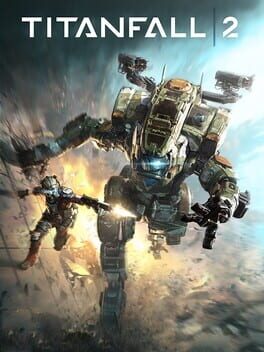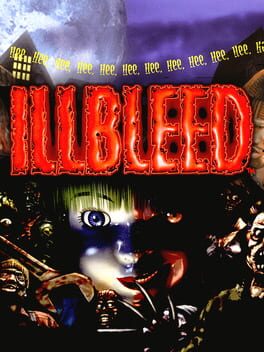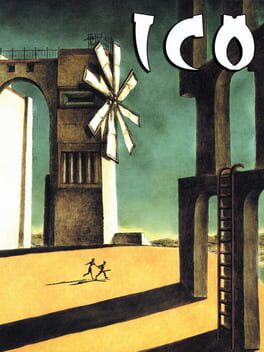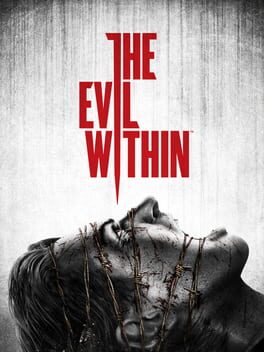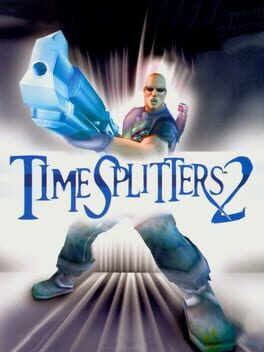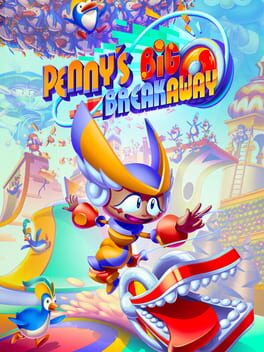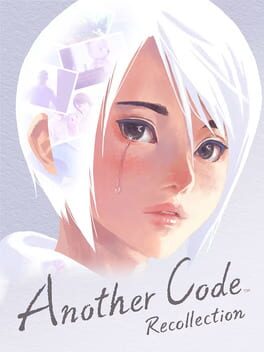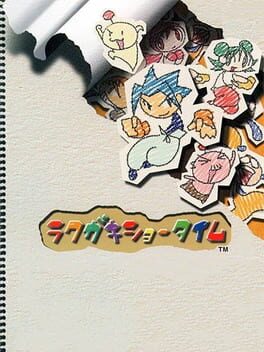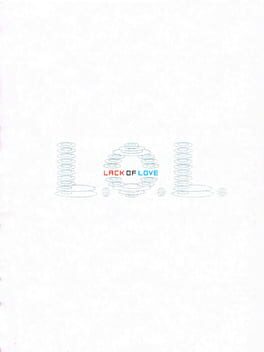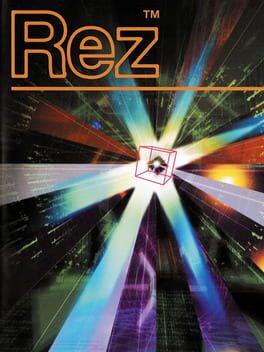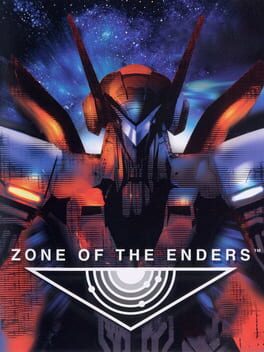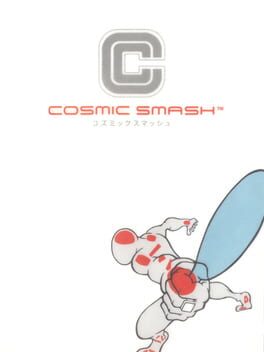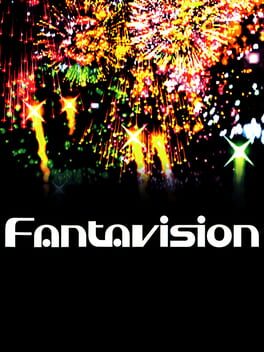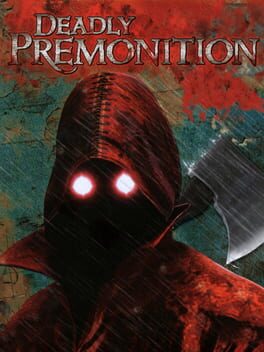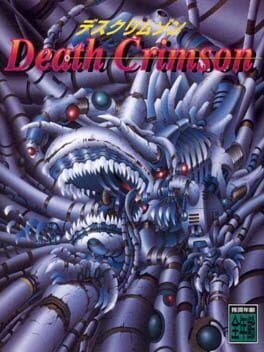DekuDeluxe
45 reviews liked by DekuDeluxe
Resident Evil 4
2023
Beneath the surface of Resident Evil 4 Remake’s 4K high-definition models, textures, and overly-polished sterile gameplay lies the rotting reactionary corpse of modernity. Resident Evil 4 Remake represents the logical end-point for art under late-stage capitalism, where creators are in a petrified state of artistic stasis where everything old must be modernised, updated, and ‘fixed’. I cannot bring myself to care about this game or the two remakes that preceded it. It’s become a homogenous and trite blob of nothingness, void of any soul or integrity.
The true reveal of Metal Gear Solid 2 is not that we play as Raiden instead of Solid Snake - it's that the antagonist of the game does not exist. It's pulling back the curtain to find that the man behind it died a century ago. The most powerful nation on Earth is essentially an algorithm with a mind of its own, akin to a runaway train that everyone "in charge" pretends they are responsible for. There is no individual you get to blame. Not the politicians, not the CEOs of major corporations. Not even the current or former presidents of the United States have any idea of what's really going on. The algorithm will replace these people the second they stop being useful. In my opinion it's a much better conception of "the system" than what you see in most conspiracy fiction: a small, shadowy cabal of people pulling the strings from behind the scenes. The reality is that all of the powerful people we blame are just the ones who managed to latch on to the algorithm of capitalism and milk it for all they can. There is no grand design, nobody is in control, everyone responsible for setting this system into motion is long dead. Which is why Otacon says the Patriots "have been dead for 100 years".
Every choice you (and Raiden) make perpetuates this status quo, and every radical political cause (like Snake and Otacon's 'Philanthropy') is effortlessly co-opted by it. MGS2 conveys this idea in a way that only a video game could: By playing as Raiden, you are forced to directly confront the futility of any resistance. You can approach MGS2 in a million different ways with an expansive arsenal of tools, getting no kills or alerts and discovering every secret in the Big Shell, or do the exact opposite. But the end result is always the same: You kill Solidus, the only threat to the Patriots, after they explicitly tell you it's exactly what they want. If you opt out entirely and "turn the game console off" you're still doing something you were ordered to do. Even if you choose not to play, you lose to the Patriots. MGS2 places you in the position of the post-information age, digital subject: Imbued with detailed knowledge of every single way you are being oppressed and exploited, you still choose to follow orders. You are so overwhelmed by information, some true, some false, that is causes a kind of exasperated compliance.
This is simultaneously a commentary on the nature of video game stories as an immutable, pre-programmed series of events not as different from film narratives as we like to think; Any "choice" is always an illusion, whether it's in Metal Gear Solid or a Telltale game. Any game that sets out to fulfill the concept of "player freedom" in its story will always fail. Video games stories are (at their best) about interactivity, not choice. They let you play out a pre-ordained role and do some improvisation, not write the story. Kojima understands this, and it's why he borrows so much from film. It's also why the criticism that his games are too much like movies is kind of pointless; he's just recognizing the inherent similarities of the two mediums.
On a less meta level, this lack of free will in MGS2 underscores the reality that capitalism, American empire, the very norms and values of American society, whatever the antagonist of the game is - cannot be destroyed from within. It is a system that has achieved self-awareness. Any possible attempt to destroy it has already been anticipated with an infinite number of contingencies. Emma Emmerich gave her life to destroy the GW AI and it was just replaced with a backup. The battle has already been lost, and it was decided by a microscopic processor in a fraction of a second. Solidus (a perfect stand-in for the kind of right-wing populist we wouldn't see for awhile in 2001) was the only person in power trying to oppose the Patriots, but his fatal mistake was believing that the Patriots were essentially a deep state globalist cabal, rather than the nigh omnipresent force they really are (they aren't really a "they", but an "it"). Like Snake said, "the Patriots are a kind of ongoing fiction". But even the legendary Solid Snake, the archetypal hero who opposes the system with clear-eyed determination, is completely dumbfounded after the credits roll.
And that's because this enemy is simply beyond the abilities of one man, even if that man is a Snake. It can just create its own soldier to surpass Solid(us) Snake and even mass-produce them, and your actions throughout the game prove it. No tactical espionage action can defeat what is essentially an idea - one that has infiltrated the furthest depths of the human soul. The only hope lies on a society-wide level: An alternative has to be built by everyone from the ground up, through finding what is true and meaningful in life and passing it on to the next generation. Slowly, generation by generation, an alternative capable of opposing the great algorithm can be built. And it has to be one that people can have faith in, in a spiritual sense.
But the encroachment of the internet into our lives is making this less and less feasible. By replacing the traditional nuclear-armed metal gear with Arsenal Gear, an AI that controls the internet, Kojima is essentially framing the internet itself as a threat equal to or greater than that of nuclear weapons. It is an instrument of human separation much more powerful than the splitting of an atom. The quote at the beginning of Raiden's chapter tying computers and nuclear weapons together bolsters this interpretation.
The digital age has turned human life into a scrambled mess that is impossible to parse. We create entirely idiosyncratic, patchwork realities for ourselves by finding various "truths" through our own individual exploration of the internet and jury-rigging them together. We relate to each other less and less, and mental illness is widespread. This overload of information makes us increasingly neurotic, isolated, and unable to determine truth from fiction. The collective human mind is being broken (or at least pounded into a new shape) against the collective neuroses of the internet, and nobody knows what to do about it. We're all alone right now, each of us left with the isolating task of finding our own truth amidst the cacophony. Even the algorithm fears for our future, yet it's still the only entity with a solution: Censorship. Make the noise stop. Honestly, has anyone thought of a better idea?
Every choice you (and Raiden) make perpetuates this status quo, and every radical political cause (like Snake and Otacon's 'Philanthropy') is effortlessly co-opted by it. MGS2 conveys this idea in a way that only a video game could: By playing as Raiden, you are forced to directly confront the futility of any resistance. You can approach MGS2 in a million different ways with an expansive arsenal of tools, getting no kills or alerts and discovering every secret in the Big Shell, or do the exact opposite. But the end result is always the same: You kill Solidus, the only threat to the Patriots, after they explicitly tell you it's exactly what they want. If you opt out entirely and "turn the game console off" you're still doing something you were ordered to do. Even if you choose not to play, you lose to the Patriots. MGS2 places you in the position of the post-information age, digital subject: Imbued with detailed knowledge of every single way you are being oppressed and exploited, you still choose to follow orders. You are so overwhelmed by information, some true, some false, that is causes a kind of exasperated compliance.
This is simultaneously a commentary on the nature of video game stories as an immutable, pre-programmed series of events not as different from film narratives as we like to think; Any "choice" is always an illusion, whether it's in Metal Gear Solid or a Telltale game. Any game that sets out to fulfill the concept of "player freedom" in its story will always fail. Video games stories are (at their best) about interactivity, not choice. They let you play out a pre-ordained role and do some improvisation, not write the story. Kojima understands this, and it's why he borrows so much from film. It's also why the criticism that his games are too much like movies is kind of pointless; he's just recognizing the inherent similarities of the two mediums.
On a less meta level, this lack of free will in MGS2 underscores the reality that capitalism, American empire, the very norms and values of American society, whatever the antagonist of the game is - cannot be destroyed from within. It is a system that has achieved self-awareness. Any possible attempt to destroy it has already been anticipated with an infinite number of contingencies. Emma Emmerich gave her life to destroy the GW AI and it was just replaced with a backup. The battle has already been lost, and it was decided by a microscopic processor in a fraction of a second. Solidus (a perfect stand-in for the kind of right-wing populist we wouldn't see for awhile in 2001) was the only person in power trying to oppose the Patriots, but his fatal mistake was believing that the Patriots were essentially a deep state globalist cabal, rather than the nigh omnipresent force they really are (they aren't really a "they", but an "it"). Like Snake said, "the Patriots are a kind of ongoing fiction". But even the legendary Solid Snake, the archetypal hero who opposes the system with clear-eyed determination, is completely dumbfounded after the credits roll.
And that's because this enemy is simply beyond the abilities of one man, even if that man is a Snake. It can just create its own soldier to surpass Solid(us) Snake and even mass-produce them, and your actions throughout the game prove it. No tactical espionage action can defeat what is essentially an idea - one that has infiltrated the furthest depths of the human soul. The only hope lies on a society-wide level: An alternative has to be built by everyone from the ground up, through finding what is true and meaningful in life and passing it on to the next generation. Slowly, generation by generation, an alternative capable of opposing the great algorithm can be built. And it has to be one that people can have faith in, in a spiritual sense.
But the encroachment of the internet into our lives is making this less and less feasible. By replacing the traditional nuclear-armed metal gear with Arsenal Gear, an AI that controls the internet, Kojima is essentially framing the internet itself as a threat equal to or greater than that of nuclear weapons. It is an instrument of human separation much more powerful than the splitting of an atom. The quote at the beginning of Raiden's chapter tying computers and nuclear weapons together bolsters this interpretation.
The digital age has turned human life into a scrambled mess that is impossible to parse. We create entirely idiosyncratic, patchwork realities for ourselves by finding various "truths" through our own individual exploration of the internet and jury-rigging them together. We relate to each other less and less, and mental illness is widespread. This overload of information makes us increasingly neurotic, isolated, and unable to determine truth from fiction. The collective human mind is being broken (or at least pounded into a new shape) against the collective neuroses of the internet, and nobody knows what to do about it. We're all alone right now, each of us left with the isolating task of finding our own truth amidst the cacophony. Even the algorithm fears for our future, yet it's still the only entity with a solution: Censorship. Make the noise stop. Honestly, has anyone thought of a better idea?
Flipnote Studio
2008
fans love to make erroneous arguments about how detractors dislike the game cos it's different, but the problem has always been that those differences amount to nothing of substance. if they're not completely insignificant they're fakeouts or walked back, if they're not fakeouts or walked back they're jj abrams mystery box bullshit to keep the online dustcloud with arms and legs kicking and howling about The Implications for another four years. this is a game more concerned with how to capture will they/won't they Engagement than its own thematic core; an impressively meticulous effort moored in goopy fanservice and speculation bait
control freak energy from top to bottom, sanitized to an extent that you'd think square report directly to the health department, and guided by one of the medium's most overbearing directorial hands. all slick and shiny bombast and spectacle, perfect skin, compilation pilled navel gazing, and endlessly wrested control. thirty long hours of red light green light meandering thru kidzbop cover acts of familiar events and environments before shunting all responsibility for unpacking anything it might have to say onto the next game
big win for folks who wanted tifa to be a noodle armed simp and sephiroth to have the presence of yakuza kiwami majima
control freak energy from top to bottom, sanitized to an extent that you'd think square report directly to the health department, and guided by one of the medium's most overbearing directorial hands. all slick and shiny bombast and spectacle, perfect skin, compilation pilled navel gazing, and endlessly wrested control. thirty long hours of red light green light meandering thru kidzbop cover acts of familiar events and environments before shunting all responsibility for unpacking anything it might have to say onto the next game
big win for folks who wanted tifa to be a noodle armed simp and sephiroth to have the presence of yakuza kiwami majima
Titanfall 2
2016
In life, we rarely get a chance to follow an art from its genesis to its conclusion. At the arse-end of history, we're often doomed to look at such things retrospectively - surrealism, rock & roll, postmodernism, the New York School of Poets, wild west movies, whatever - and wonder what it was like to evolve and ultimately ascend to atrophia in tandem with a creative movement.
Titanfall 2 is, therefore, a rare privilege. A game that has, with the retrospective power of its seven-year existence, definitively marked the end of an era that was carved out by Call of Duty thirteen years prior. Halo, Modern Warfare, Bioshock, Borderlands, Wolfenstein, the lot - I feel like it's fair to say that Titanfall 2 encompasses its own movement, the nature of its existence, and all the reasons it could not continue - where do you go beyond time? If you'll forgive the incredibly fucking pretentious analogy, Titanfall 2 is not unlike Let It Be, the final Beatles album that put the cap on a half-century of rock. (You could probably extrapolate this complete nonsense further and suggest that the corporate self-awareness of popstars popping up in Warzone and Fortnite mirrors the ironic MTV garage grunge of Kurt Cobain, but hey! - that would probably sustain an equally stupid Backloggd essay of its own.)
What makes Titanfall 2 rarer still is that it’s an ending to a now-lost artform that began with the same creator years prior. Infinity Ward may have respawned, but they were, at this conclusive point in time, the same unit of creation from 2003. Impressionism was started by guys like Claude Monet, but was drawn (painted?) to a close by Van Gogh, a conscious will that passed down a century, their art thankfully/tragically unaccelerated by lack of commercial interest. They say an artwork is never finished, but fortunately for us the future is far more financial than we originally projected - artistic movements can now be efficiently condensed into a decade of fiscal quarters. We can watch an artform rise and fall upon the plateau in the time it takes to finish a high school diploma, and that's neither a good thing nor a bad thing; just a thing that happens now. Let it be.
Sure, other militaristic first-person dual-weapon wall-running action shooters with automatic health recovery have come after Titanfall 2, but they're essentially invalid imitations, impressionist postcards that we pick up in the lobby of the Van Gogh Museum. They're the consequences of something that's gone for good. Never to return, for better and for worse.
Titanfall 2 is, therefore, a rare privilege. A game that has, with the retrospective power of its seven-year existence, definitively marked the end of an era that was carved out by Call of Duty thirteen years prior. Halo, Modern Warfare, Bioshock, Borderlands, Wolfenstein, the lot - I feel like it's fair to say that Titanfall 2 encompasses its own movement, the nature of its existence, and all the reasons it could not continue - where do you go beyond time? If you'll forgive the incredibly fucking pretentious analogy, Titanfall 2 is not unlike Let It Be, the final Beatles album that put the cap on a half-century of rock. (You could probably extrapolate this complete nonsense further and suggest that the corporate self-awareness of popstars popping up in Warzone and Fortnite mirrors the ironic MTV garage grunge of Kurt Cobain, but hey! - that would probably sustain an equally stupid Backloggd essay of its own.)
What makes Titanfall 2 rarer still is that it’s an ending to a now-lost artform that began with the same creator years prior. Infinity Ward may have respawned, but they were, at this conclusive point in time, the same unit of creation from 2003. Impressionism was started by guys like Claude Monet, but was drawn (painted?) to a close by Van Gogh, a conscious will that passed down a century, their art thankfully/tragically unaccelerated by lack of commercial interest. They say an artwork is never finished, but fortunately for us the future is far more financial than we originally projected - artistic movements can now be efficiently condensed into a decade of fiscal quarters. We can watch an artform rise and fall upon the plateau in the time it takes to finish a high school diploma, and that's neither a good thing nor a bad thing; just a thing that happens now. Let it be.
Sure, other militaristic first-person dual-weapon wall-running action shooters with automatic health recovery have come after Titanfall 2, but they're essentially invalid imitations, impressionist postcards that we pick up in the lobby of the Van Gogh Museum. They're the consequences of something that's gone for good. Never to return, for better and for worse.
Super Mario 64
1996
The Silver Case
2016
Illbleed
2001
Starfield
2023
Can’t wait for this game to be unfairly and completely ripped to shreds before annoying online personalities in a few years release “Starfield 3 Years Later: A Hidden Masterpiece?” This is inevitably a Bethesda game after all, but there is something magical in waiting for a new release. Todd Howard’s passion project love baby - so intricately dense and in parallel shallow with the same issues that plague anything he touches that, if I can’t lie, was exactly what I expected. And at the end of the day I can’t really complain - Hundreds of hours will be put into what’s made here - exploring, scavenging, talking and raiding until I’m left slamming my head wondering why I even bothered. Don’t even bother reading many reviews. It’s Starfield.
6 lists liked by DekuDeluxe
by 87th |
26 Games
by GameJammer |
34 Games
by vehemently |
146 Games
by 87th |
25 Games
by Harkov |
451 Games





